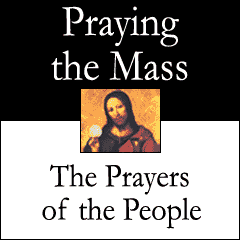I don’t know the details of the cases and, to be honest, I don’t want to. But finally it looks as if the Vatican has made a decisive move on the long running case of Fr Marciel Maciel, the founder of the Legionaries of Christ:
The Vatican Press Office released the following communiqué today, May 19, 2006. This is an English translation of the Italian original.
COMMUNIQUE OF THE PRESS OFFICE OF THE HOLY SEE
In reference to news reports diffused concerning the person of the Founder of the Legionaries of Christ, the Reverend Fr. Marcial Maciel Degollado, the Press Office of the Holy See communicates the following:
Beginning in 1998, the Congregation for the Doctrine of the Faith received accusations, already in part made public, against the Reverend Fr. Marcial Maciel Degollado, founder of the Congregation of the Legionaries of Christ, for offenses reserved to the exclusive competence of the dicastery. In 2002, the Reverend Maciel published a declaration for denying the accusations and for expressing his displeasure at the offense provoked by some ex-members of the Legionaries of Christ. In 2005, for reasons of advanced age, the Reverend Maciel withdrew himself from the office of Superior General of the Congregation of the Legionaries of Christ.
All these elements were the object of mature examination on the part of the Congregation for the Doctrine of the Faith, and, in accordance with the motu proprio “Sacramentorum sanctitatis tutela” promulgated April 30, 2001, by the Servant of God John Paul II, the then-Prefect of the Congregation for the Doctrine of the Faith, His Eminence Cardinal Joseph Ratzinger, authorized an investigation of the accusations. In the meantime, the death of Pope John Paul II happened and the election of Cardinal Ratzinger as the new Pontiff.
After having submitted the results of the investigation to an attentive study, the Congregation for the Doctrine of the Faith, under the guide of its new Prefect, His Eminence Cardinal William Levada, decided – taking account of the advanced age of the Reverend Maciel and his delicate health – to renounce any canonical process and to invite the Father to a reserved life of prayer and penance, renouncing every public ministry. The Holy Father has approved these decisions.
Independently of the person of the Founder, the worthy apostolate of the Legionaries of Christ and the Regnum Christi Association is recognized with gratitude.
[Original Text: Italian]
Lots more news and reflections can be found on the Websites of the National Catholic Reporter , Amy Welborn, and Sandro Magister.
While noting that the Vatican Communiqué does not (in so many words) declare Fr Maciel guilty of the accusations that have been brought against him, I think the important point in the Vatican Communiqué however is that last: “Independently of the person of the Founder, the worthy apostolate of the Legionaries of Christ and the Regnum Christi Association is recognized with gratitude.”
The point is that too often, religious orders and movements (eg. Legionaries of Christ, Opus Dei) have assumed that their founders must be saints for the simple reason that they did such monumentally excellent and saintly work in founding the order or movement in question.
On the other hand, there are always many others who are ready to point out with glee the moral and personal failings of the founders with the hope that the order/movement itself (eg. Legionaries of Christ, Opus Dei) will be brought into disrepute and rendered ineffectual.
Let us always be clear on this: being a sinner—even a very wicked one—doesn’t mean that God can’t use you for a saintly purpose. God can—and does—work with the most amazingly rotten raw-material to build his holy Church. That’s a point that is awfully close to the very heart of the Christian gospel.
Papa Benny, almost 40 years ago, wrote in “Introduction to Christianity” that:
“The Church is not called “holy” in the Creed because her members, collectively and individually, are holy, sinless men… The sharpest critics of the Church in our time secretly live on this dream and, when they find it disappointed, bang the door fo the house shut again and denouce it as deceit… The holiness of the Church consists in that power of sanctification which God exerts in her in spite of human sinfulness.”
Shortly after this passage, he goes on:
“God has drawn sin to himself, made it his lot, and so revealed what true “holiness” is: not separation, but union; not judgement, but redeeming love. Is the Church not simply the continuation of God’s deliberate plunge into human wretchedness? …Is there not revealed in the unholy holiness of the Church, as opposed to man’s expectation of purity, God’s true holiness, which is love, love that does not keep its distance in a sort of aristocratic untouchable purity but mixes with the dirt of the world, in order thus to overcome it?”
Let he who is without sin cast the first stone.







